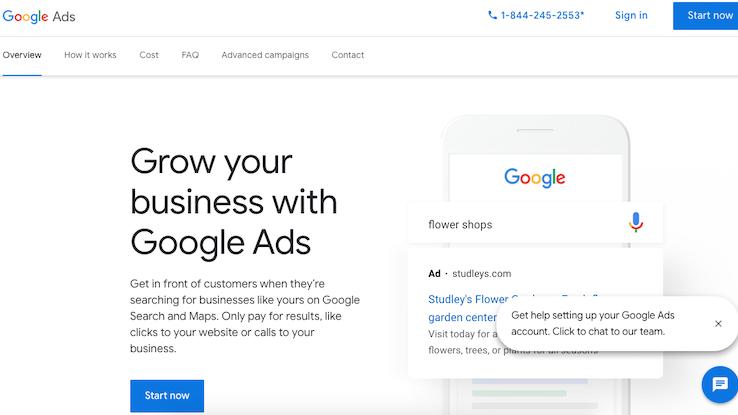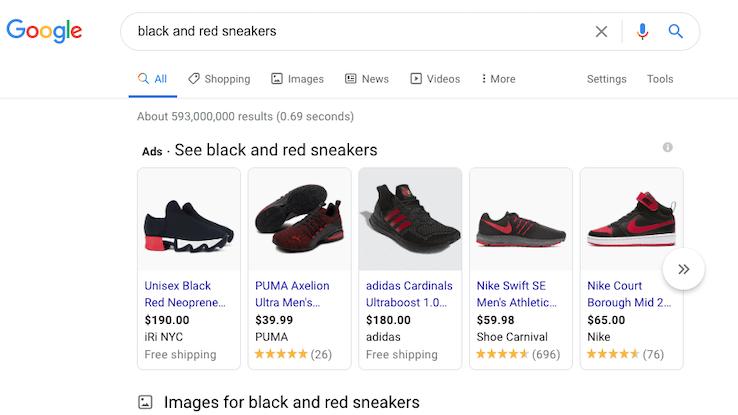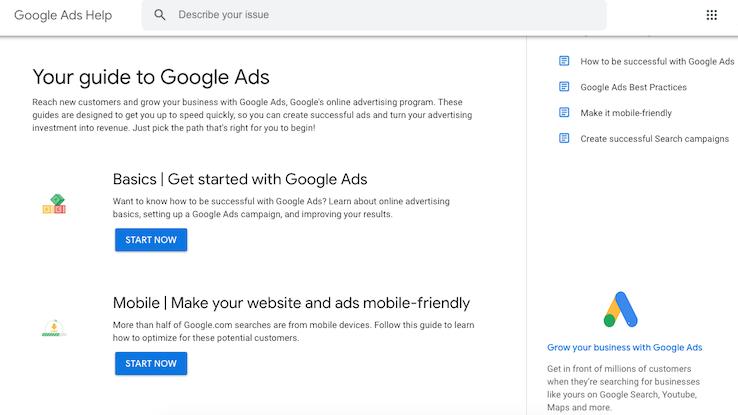Create Feed for Google and Bing Ads Prestasho

If you're starting to dip a toe into the worlds of online marketing or digital advertising, one of the first terms you've probably heard — and one you'll continue to hear over and over again — is "Google Ads." This system is one you'll want to know about, particularly if you're planning to take a deep dive into those online fields, because it's become an almost-essential component of advertising on the internet. But what is Google Ads, and how does it work? Learn more about the history and functionality of this platform and its services.
What Is Google Ads?
Years ago, you might've heard people reference Google AdWords when they were talking about this system — that's the former name of Google Ads. But both before and after the rebrand, Google Ads has remained an online, auction-style system that allows buyers to bid money for the right to use certain keywords and have their companies' advertisements displayed in a variety of locations online.

Initially launched in 2000 as AdWords and renamed Google Ads in 2018, the platform is a subscription service that aims to help businesses and companies of all sizes manage certain details of their own advertising campaigns via an online portal. The primary purpose of the service is to get clients' advertisements in front of the right customers and site visitors using a combination of keyword choices and placement options for the spaces where and ways that ads are displayed to consumers.
If you've ever Googled something, you've likely seen the types of digital advertisements Google Ads places. There are several different options available depending on the type of marketing campaign a company is running. Some of the more common are product ads, which are positioned in a carousel at the top of a search results page and include product photos and website links. Text ads appear at the tops and bottoms of search results pages and include quick blurbs of information along with links to the related websites. These look similar to the regular search results that Google displays, but they include the word "Ad" next to them in bold text.

Google also places ads in other spots using the Google Display Network. This is a vast number of websites across the internet that have agreed to allow Google to place advertisements on their pages instead of on search results pages. These are the image-based banner ads that show up along the sides and in other areas of websites. They may be static or animated, and they may also be responsive, meaning that they change shape or start playing sounds when a cursor hovers over them. Display ads like these that appear on websites, not in search results, are part of a different Google program called AdSense.
What Does Google Ads Do?
The basic premise behind Google Ads is that, when consumers use certain words in their regular Google searches, Google Ads displays digital advertisements in the search results related to the words the consumers originally used in their searches. This helps consumers find what they're looking for. Companies using Google Ads pay to have their ads placed in the search results when people search for the keywords the companies have chosen to connect to their ads. But how do marketers get those keywords connected to the ads?

Using the Google Ads platform, marketers select lists of keywords that are relevant to whatever's going to appear in their digital advertisement. Imagine a company sells sneakers and its marketers want to place an ad for a pair of black and red shoes. Those marketers need to think of words and phrases consumers are likely to use when typing in a Google search for those shoes — they might be things like "black shoes red soles," "black and red sneakers" or "black sneakers with red." They then reserve the use of these keywords by deciding the maximum amount of money they're willing to pay to get a consumer to click on an ad that's connected to those target phrases.
One reason marketers have to place bids by setting maximum amounts is because Google Ads uses a cost-per-click (CPC) model. This means that, each time a consumer clicks on an ad from the search results page, the company whose ad it is pays Google the bid amount. This is one way Google earns revenue from the Google Ads program. The cost of the keywords ultimately depends on elements like how competitive the phrases are and the geographic location of the company that's bidding on them. The average cost per click for a Google Ad is around $2.30.
What Does the Bidding Process Look Like?
Google Ads determines which advertisements show up on a search results page by hosting an auction. These aren't like the auctions that take place on bidding sites like eBay, however. They're exceptionally fast, happening in the length of time it takes for someone to perform a Google search and wait a few seconds for the results page to load.

When a consumer performs a search on Google, Google looks at the pool of advertisers who have ads that might be relevant to the search. When it determines that an ad is relevant to the search query and that multiple advertisers want to bid on keywords related to the query, the auction process begins. During the auction, Google looks at the maximum bid amount each advertiser has listed for their ad. It also assigns each ad a quality score depending on how likely it is to match the consumer's intent behind their search.
Using an algorithm to process this information, Google determines which ads have the best combined quality scores and bid amounts. It ultimately ends up displaying those ads to the consumer. Ads that are still relevant but have lower rankings are displayed in different positions on the search results page.
Source: https://www.questionsanswered.net/tech/learn-how-google-adwords-works?utm_content=params%3Ao%3D740012%26ad%3DdirN%26qo%3DserpIndex&ueid=67a3841a-2f11-4a98-865a-a18eacdfbb79
0 Response to "Create Feed for Google and Bing Ads Prestasho"
Postar um comentário